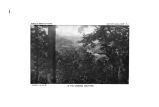| OCR Text |
Show MOONEY] THE UNICOI TURNPIKE 87 and, should it so happen that a brother, forgetting his natural affections, should raise his hands in anger and kill his brother, he shall be accounted guilty of murder and suffer accordingly. 3. If a man have a horse stolen, and overtake the thief, and should his anger be so great as to cause him to shed his blood, let it remain on his own conscience, but no satisfaction shall be required for his life, from his relative or clan he may have Ijelonged to. By order of the seven clans. l Under an agreement with the Cherokee in 1813 a company composed of representatives of Tennessee, Georgia, and the Cherokee nation was organized to lay out a free public road from Tennessee river to the head of navigation on the Tugaloo branch of Savannah river, with provision for convenient stopping places along the line. The road was completed within the next three years, and became the great highway from the coast to the Tennessee settlements. Beginning on the Tugaloo or Savannah a short distance below the entrance of Toccoa creek, it crossed the upper Chattahoochee, passing through Clarkes-ville, Nacoochee valley, the Unicoi gap, and Hiwassee in Georgia; then entering North Carolina it descended the Hiwassee, passing through Hayesville and Murphy and over the Great Smoky range into Tennessee, until it reached the terminus at the Cherokee capital, Echota, on Little Tennessee. It was officially styled the Unicoi turnpike, 2 but was commonly known in North Carolina as the Wachesa trail, from Watsi'sa or Wachesa, a prominent Indian who lived near the crossing- place on Beaverdam creek, below Murphy, this portion of the road being laid out along the old Indian trail which already bore that name. 8 Passing over for the present some negotiations having for their purpose the removal of the Cherokee to the West, we arrive at the period of the Creek war. Ever since the treaty of Greenville it had been the dream of Tecum-tha, the great Shawano chief ( 33), to weld again the confederacy of the northern tribes as a barrier against the further aggressions of the white man. His own burning eloquence was ably seconded by the subtler persuasion of his brother, who assumed the role of a prophet with a new revelation, the burden of which was that the Indians must return to their old Indian life if they would preserve their national existence. The new doctrine spread among all the northern tribes and at last reached those of the south, where Tecumtha himself had gone to enlist the warriors in the great Indian confederacy. The prophets of the Upper Creeks eagerly accepted the doctrine and in a short time their warriors were dancing the " dance of the Indians of the lakes." In iln American State Papers: Indian Affairs, n, p. 288,1834. » 8ee contract appended to Washington treaty, 1819, Indian Treaties, pp. 269- 271,1837; Royce map, Fifth Ann. Rep. Bureau of Ethnology, 1888. » Author's personal information. |































































































































































































































































































































































































































